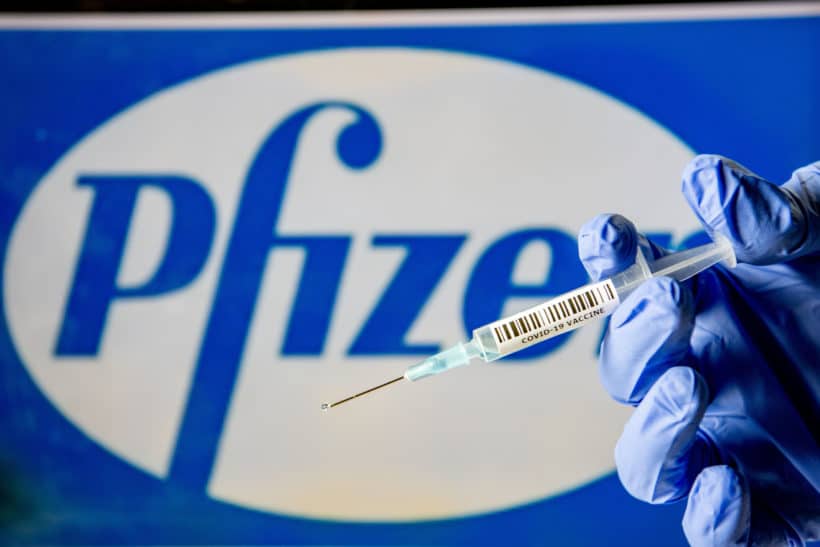
July 21 (Reuters) – Pfizer Inc and BioNTech SE on Wednesday said they had struck a deal for South Africa’s Biovac Institute to process and distribute over 100 million doses a year of their COVID-19 vaccine for the African Union beginning in 2022.
The deal is to “fill and finish” the vaccine, the final stages of manufacturing where the product is processed and put into vials. It does not cover the complicated processes of mRNA drug substance production, which Pfizer and BioNTech will do at their own facilities in Europe.
The agreement comes as Pfizer and BioNTech try to sway World Trade Organization (WTO) members from supporting a waiver on some intellectual property rights for COVID-19 vaccines.
It will make Biovac – a joint venture between the South African government and private sector partners – one of the few companies in Africa processing and distributing COVID-19 shots, and the first to do so using the mRNA technology.
South African pharmaceutical company Aspen has a “fill and finish” deal with Johnson & Johnson for its viral vector COVID-19 vaccine.
African countries have some of the lowest vaccination rates worldwide, and many are dependent on global vaccine sharing scheme COVAX, which has struggled to deliver.
Morena Makhoana, CEO at Cape Town-based Biovac, told Reuters the aim was to start producing shots “towards the second half of 2022” and then ramp up to maximum output of around 100 million doses a year by early 2023.
On-site development and equipment installation would begin immediately, Pfizer and BioNTech said.
Makhoana said Biovac would modify its plant by expanding next to the filling line and investing in new freezers, as the vaccine needs to be stored at -70 degrees Celsius.
South African President Cyril Ramaphosa, whom the African Union has named its “Champion on COVID-19,” called the agreement a breakthrough in efforts to overcome vaccine inequity.
He added it entailed a shared investment of 200 million rand ($13.6 million) in the coming six months.
WTO members have been in talks for months on waiving drug firms’ intellectual property (IP) rights for COVID-19 vaccines. Many developing countries including South Africa and India support the waiver, but several wealthy countries remain opposed, saying it would deter research that allowed COVID-19 vaccines to be produced so quickly.
“Weakening IP rules will only discourage the type of unprecedented innovation which brought vaccines forward in record time and make it harder for companies to collaborate,” Pfizer CEO Albert Bourla said in remarks prepared for a WTO summit later on Wednesday.
The World Health Organization last month chose a consortium including Biovac for a “tech transfer hub” in South Africa, part of efforts to give poor and middle-income countries the knowledge and licences to produce COVID-19 vaccines.
Biovac has partnered with Pfizer since 2015 to manufacture and distribute its Prevnar 13 pneumonia vaccine, although it is still awaiting regulatory approval, Makhoana said.
“Having an existing relationship always helps,” he said on his company’s expanded ties with Pfizer.
($1 = 14.6900 rand)
(Reporting by Michael Erman, Wendell Roelf and Alexander Winning Editing by Richard Pullin and Mark Potter)